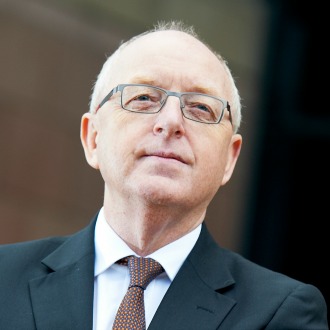Exclusive The withdrawal of MPIG and the cuts to funding for PMS practices will continue, despite NHS England pledging to ‘stabilise core GP funding’ in its five-year plan, it has confirmed.
The NHS England five-year plan said that it will invest more in primary care, while ‘stabilising core funding for general practice’ over the next two years, but a leading official has told Pulse the ongoing destabilising funding withdrawals of MPIG and PMS funding will continue.
Pulse has also learnt that the Carr-Hill funding formula is likely to remain as it is, despite pledges from GPC and NHS England to review the formula, which determines practices’ core funding.
GP leaders said that NHS England’s commitment amounted to ‘stability of no resource’.
Dr Mike Bewick, deputy medical director of NHS England, told Pulse that NHS England has ‘already provided support’ for practices threatened by cuts to MPIG practices, despite Pulse revealing that only 15 practices are to benefit from this support.
Dr Bewick said: ‘Our aim is to help GPs stabilise their resources – human as well as funding, pace the returners issue – to allow for a more detailed and strategic look at the future models of care. At present it has no direct impact on MPIG as NHSE has already provided support to stabilise practices. It will not halt the normal business of contractual updates and negotiations, but will I hope encourage a more forthright and open debate about the future.’
Further clarifying the stance, an NHS England spokesperson added: ‘There will be no further changes until conclusion of PMS review[s], and… we will [still] look at Carr-Hill.’
The admission comes after NHS England said yesterday it will be investing ‘a much higher proportion’ of its budget on GP services including premises. ‘Given the pressures they are under, we need a “new deal” for GPs’, and promised to ‘stabilise core funding’ for GPs for the next two years in its five year plan.
Related stories:
New GPs to be offered £20,000 ‘golden hello’ after local authority intervenes
Don’t expect help – we need to tackle the recruitment crisis ourselves
PMS practices face £260m losses as NHS England announces two-year review of all contracts
GPC deputy chair Dr Richard Vautrey said this commitment was of not much use.
He said: ‘It doesn’t actually help solve the problem. There is a crisis now and we need urgent resource now. Stability isn’t going to solve that.
‘We have been pushing for a halt to the MPIG withdrawal for some time but there is no sign that they will listen. Instead they have made some quite measly concessions which affect a tiny number of practices at the extreme end but in the general case the seven-year process is continuing.
‘We can’t wait five years for investment in general practice either, or for three years after two years of stability. We have to see that investment starting now and there are ways in which the NHS can do that.’
Dr Vautrey added that it was unlikely that the review of Carr-Hill – announced yet again with the 2015/16 GP contract deal after years of debate and despite a recent commitment to begin to roll out changes next year already – would lead to any major changes.
He said: ‘The bottom line is that we need additional resource into the formula. Any review that just takes money from Peter to pay Paul is just not acceptable.’
Asked whether practices should expect changes to the formula, he added: ‘No.’
Pulse can also reveal NHS England managers are not looking at rewriting the formula as a priority. A Freedom of Information Act request unveiled emails between senior NHS England officials last summer urging for other measures to be prioritised to redistribute GP funding to cater for deprivation.
NHS England director of commissioning policy and primary care Ben Dyson wrote to colleagues in July last year.
He said: ‘I would argue against relying too much on Carr-Hill as a way of tackling inequalities, or rather there may be a good case for some slight re-weighting of Carr-Hill, but if we want to make a more decisive impact on primary care quality and access in deprived areas, we should use different forms of contracting (PMS, APMS etc) – and this relies upon keeping “primary care plus” funding.’
Pulse October survey
Take our July 2025 survey to potentially win £1.000 worth of tokens














